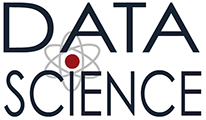The UNINA Master in Data Science was established in 2019 and it was structured according to the philosophy outlined here in order to quickly adjust to a rapidly evolving scenario. Originally incardinated in the Department of Physics, in 2023 it was incardinated in the Department of Electric and Information Technologies - DIETI. This change allowed the master to better cope with the rapid evolution of the field and to achieve a better integration within the rich ecosystem of companies and start-ups that are in high demand for Data Scientists. All lectures and short courses are in English. Exams are preferably in English.
The master lasts two years.
The first year aims at teaching all fundamental methodologies: the mathematics behind data science, fundaments of informatics and programming in Python, database management and techniques needed to handle big data and computer networks, data mining, and advanced statistics. In all courses, emphasis is put on combining theory and practice in order to render the student familiar with the most important methods and tools in data science.
In all first-year courses, much attention is paid to showcasing real applications and developing the capability to work in teams. Exams usually consist of the presentation and discussion of the outcomes of these group projects (see here for a few examples of completed projects). Whenever possible, students are encouraged to participate in national or international contests such as those proposed by Kaggle or other companies (ex. the Fater Group).
The second year is instead oriented to acquire familiarity with at least one domain of application. The student will follow courses where their familiarize with the data structures, the problems, and the methods and tools that are specific to a given field of data science and will learn how to interact with the domain experts. This interaction among disciplines is a pillar of the master: Data Science, to be effective needs interdisciplinary teams where there is a constant dialogue between the data scientist (experts of the methodology) and the domain experts who instead know the details of the problems to be addressed in a specific field of activity.
The second year is therefore articulated in four curricula and a variety of learning paths. Each path specialized in a specific area of data science. This structure, coupled with the academic and research excellence of the University Federico II, guarantees that students will always be in touch with the most recent advances in a given field.
Further flexibility is ensured by the possibility to design Individual curricula are possible even though they must be first discussed with the coordinator of the master or with a professor expert in the field.
The courses are complemented by the Picariello lectures on Data Science: weekly seminars aimed at introducing the students to the various aspects and problems of data science. Past lectures can be watched on the specific playing list of the Data Science UNINA - You tube channel".
Final exam. The master is completed by a 3-6 months long internship at a company, research institute or academic institution. Read here for more information. In some cases, these internships/stages are paid. The final exam, where the candidate discusses the outcome of his work (thesis/internship/stage), is held according to the published calendar. If you wish to look at the quality of the works discussed by some of our students you can look here.
Click to learn more about the learning plan.







